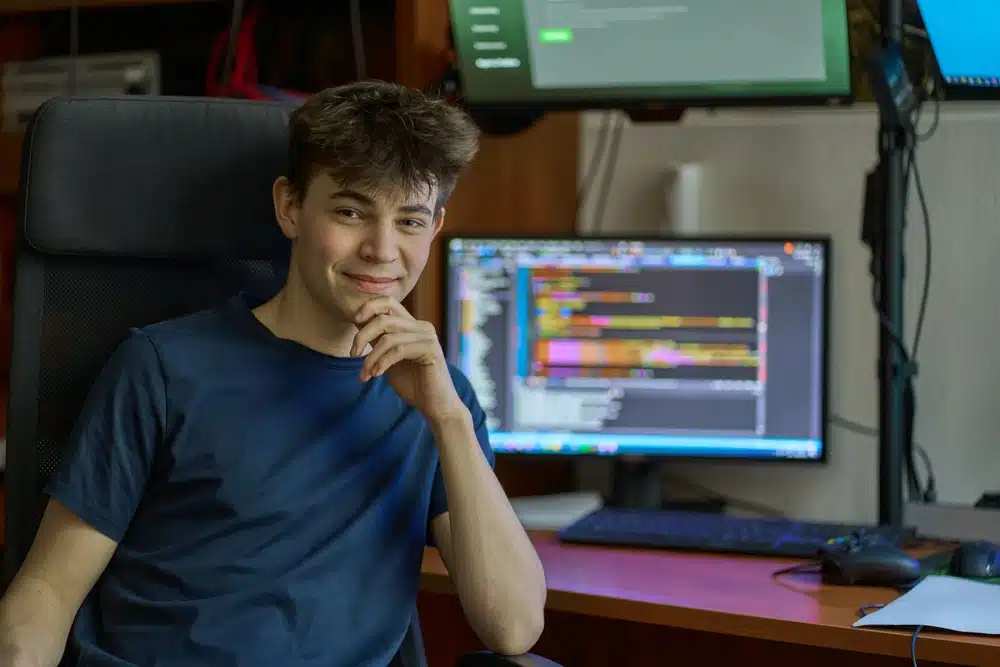Design Squad Global: Everything You Need To Know
Design Squad Global (DSG) is a powerful educational platform that not only ignites creativity in young minds but also fosters a sense of collaboration and teamwork among children worldwide.
The platform, created by WGBH Educational Foundation, is specifically designed for children aged 10 to 13, offering a wide range of educational resources, activities, and challenges that revolve around the fascinating world of engineering and design. In today’s blog, we will explore the myriad features and opportunities that the platform offers, providing a comprehensive understanding of this innovative platform.
The objectives of the platform
The platform’s objectives reflect a commitment to nurturing well-rounded individuals who are prepared to face the challenges of the 21st century. The platform is an outstanding platform that not only makes STEM learning enjoyable and engaging for young minds but also seeks to instill essential life skills through creativity, critical thinking, and global collaboration.
Objective 1: Promote STEM Learning
One of the primary objectives of Design Squad Global is to encourage STEM learning among children. Through engaging hands-on activities and challenges, the platform aims to make STEM concepts accessible and enjoyable for young learners.
By providing a wealth of resources and materials, DSG allows children to learn about various engineering principles, such as the design process, problem-solving, and prototyping. Through these experiences, children develop a strong foundation in STEM, which can lead to future academic and professional success in related fields.
Objective 2: Foster Creativity and Critical Thinking
Another key objective of DSG is to nurture creativity and critical thinking skills among children. By encouraging children to think outside the box and develop their own solutions to engineering problems, the platform helps them build confidence in their creative abilities. Moreover, DSG emphasizes the importance of learning from failure, teaching children to analyze their designs, identify shortcomings, and refine their ideas. This iterative process fosters critical thinking skills, which are vital for success in various aspects of life.
Objective 3: Encourage Global Collaboration
Design Squad Global seeks to create a sense of global community and collaboration among children. By connecting young learners from diverse backgrounds and cultures, the platform enables them to work together on engineering and design projects.
This global connection fosters empathy, understanding, and teamwork, which are essential life skills that extend beyond STEM learning. By promoting international collaboration, DSG aims to empower children to become global citizens who can tackle complex challenges and contribute to a better world.
Objective 4: Support Educators and Parents
Recognizing the crucial role that educators and parents play in facilitating learning, DSG aims to provide them with the necessary resources and tools to support STEM education. The platform offers comprehensive guides, lesson plans, and materials that align with the activities and challenges presented on the website.
By equipping educators and parents with these resources, DSG ensures that children receive the support they need to succeed in their creative endeavors.
The History of Design Squad Global
The history of Design Squad Global is a testament to the power of innovation and the unwavering commitment to fostering creativity, collaboration, and critical thinking among young learners. From its humble beginnings as a television show to its evolution into a comprehensive educational platform, the platform has become a valuable resource for children, educators, and parents worldwide.
The Genesis of Design Squad
Before Design Squad Global came into existence, there was Design Squad – a PBS television show that premiered in 2007. The show, produced by WGBH Boston, aimed to engage young viewers by showcasing a diverse group of high school students working together to solve engineering challenges.
The contestants on the show were tasked with designing and building various projects, which were then judged by a panel of experts. The primary goal of the show was to make engineering and design accessible and fun, inspiring children to pursue STEM-related fields.
From Television Show to Online Platform
Following the success of the Design Squad television show, WGBH decided to expand the concept to an online platform. In 2008, the Design Squad website was launched, featuring a variety of resources such as hands-on activities, multimedia content, and engineering challenges.
The website aimed to bring the excitement and innovation of the television show to a wider audience, allowing children from around the world to participate in engineering and design projects.
The Birth of Design Squad Global
Building on the success of the Design Squad website, WGBH took the initiative a step further by launching Design Squad Global in 2016. This new platform aimed to connect children from around the world and foster international collaboration through engineering and design projects. DSG introduced the concept of DSG Clubs, which allowed children to join virtual or in-person clubs to work together on projects and exchange ideas.
By emphasizing global connections, the platform sought to nurture empathy, understanding, and teamwork among children, creating well-rounded global citizens.
Expansion and Recognition
Since its inception, the platform has continued to evolve and expand, offering an ever-growing collection of educational resources, activities, and challenges. The platform has been recognized for its excellence in educational programming, winning multiple awards, such as the Parents’ Choice Gold Award and the CINE Golden Eagle Award.
DSG has also partnered with various organizations, such as the Peace Corps and the U.S. Agency for International Development, to further promote STEM learning and global collaboration among children.
Who can participate?
So who can participate? Design Squad Global primarily targets children aged 10 to 13, offering age-appropriate resources and activities that cater to their interests and developmental needs.
However, DSG also welcomes educators, parents, and mentors who are passionate about supporting young learners in their STEM (science, technology, engineering, and mathematics) education journey. By providing resources for both children and their supporters, the platform creates an inclusive environment where everyone can contribute to the learning experience.
How to participate
Let’s discuss how you can participate. In Design Squad Global, children and their supporters can access a wealth of resources, engage with a global community, and develop essential life skills that will benefit them both in and outside of the classroom.
How to Participate: For Children
- Explore the Website: The first step for children interested in participating in Design Squad Global is to explore the website. The platform offers a user-friendly interface with various sections, such as Activities, Watch, Educators, and Global, providing a wealth of engaging content.
- Dive into Activities: Children can participate in DSG by choosing from a wide range of hands-on activities and challenges available on the website. These activities cover diverse themes, from building structures to designing machines, and include detailed instructions, lists of materials, and printable guides to facilitate the creative process.
- Engage with Videos: The Watch section of the website features a vast library of videos, including Design Squad Global TV show episodes, animated explanations of engineering concepts, and real-life examples of design and engineering projects. By watching these videos, children can deepen their understanding of STEM concepts and gain inspiration for their own projects.
- Join DSG Clubs: To participate in global collaboration, children can join DSG Clubs, which are either virtual or in-person clubs that enable them to work together on projects and exchange ideas. By joining a club, children can develop teamwork skills, learn about different cultures, and broaden their perspectives.
How to Participate: For Educators, Parents, and Mentors
- Utilize Educational Resources: Educators, parents, and mentors can support children’s participation in DSG by accessing the comprehensive guides, lesson plans, and resources available in the Educators section of the website. These materials align with the activities and challenges presented on the platform, allowing supporters to facilitate children’s learning effectively.
- Establish DSG Clubs: To encourage global collaboration, educators and mentors can establish DSG Clubs in their schools, communities, or online. By creating a club, they provide children with a supportive environment where they can collaborate on projects, share ideas, and learn from one another.
- Encourage Participation: Educators, parents, and mentors play a crucial role in motivating children to participate in the platform. By expressing enthusiasm, offering guidance, and celebrating children’s achievements, they can inspire young learners to engage fully with the platform and its resources.
The Impact of Design Squad Global
The impact of Design Squad Global on young learners, educators, and communities is immense, extending far beyond the realm of STEM education. By inspiring a love for STEM subjects, developing essential life skills, supporting educators and parents, and fostering global collaboration and understanding, DSG has transformed the way children approach learning and problem-solving.
Inspiring a Love for STEM
One of the most significant impacts of the platform is its ability to inspire a passion for STEM subjects among young learners. By offering engaging hands-on activities, multimedia content, and real-life examples of engineering and design projects, DSG demystifies complex concepts and makes them accessible and enjoyable for children.
This approach has led to increased interest in STEM fields, encouraging children to pursue further education and careers in related areas. As a result, the platform plays a vital role in nurturing the next generation of engineers, scientists, and innovators.
Developing Essential Life Skills
Beyond its focus on STEM learning, the platform also emphasizes the development of essential life skills, such as creativity, critical thinking, problem-solving, and teamwork. Through participation in DSG activities and challenges, children learn to think outside the box, analyze their designs, and refine their ideas.
This iterative process helps young learners build confidence in their abilities and foster resilience in the face of failure. Furthermore, by working together on projects and collaborating with peers from around the world, children develop empathy, communication, and leadership skills that prepare them for success in various aspects of life.
Supporting Educators and Parents
Design Squad Global has had a significant impact on the way educators and parents approach STEM education. By providing comprehensive guides, lesson plans, and resources that align with the activities and challenges presented on the platform, DSG equips teachers, parents, and mentors with the tools they need to support children effectively in their learning journey.
This has led to more engaging and interactive learning environments where children can explore their interests and develop their skills with the guidance of knowledgeable and passionate adults.
Fostering Global Collaboration and Understanding
Perhaps one of the most unique aspects of Design Squad Global is its emphasis on global collaboration. By connecting children from diverse backgrounds and cultures, the platform fosters a sense of empathy and understanding among young learners. This global connection enables children to broaden their perspectives, appreciate different ways of thinking, and develop a greater appreciation for diversity.
As a result, the platform is not only shaping the future of STEM education but also nurturing compassionate global citizens who can contribute to a better world.
The Competition Details
Let’s delve into the competition details of the platform, exploring how these contests ignite passion, drive innovation, and promote global collaboration. The competitions play a vital role in motivating young learners to pursue their passions, develop their skills, and collaborate with others to create innovative solutions to pressing global challenges.
Overview of Design Squad Global Competitions
DSG competitions are designed to inspire young learners to create innovative solutions to real-world engineering and design problems. These contests provide children with a platform to showcase their creativity, hone their problem-solving skills, and connect with like-minded peers from around the world. By participating in DSG competitions, children gain valuable experience working on projects that have the potential to make a tangible difference in their communities and beyond.
Key Components of DSG Competitions
Challenge Themes: DSG competitions are centered around specific themes or engineering challenges. These themes range from creating sustainable energy solutions to designing assistive devices for people with disabilities. By focusing on real-world problems, DSG competitions encourage children to think critically and empathetically about the needs of their communities and the wider world.
Collaboration and Teamwork: A core element of DSG competitions is the emphasis on collaboration and teamwork. Participants are encouraged to form teams, either within their schools or communities or by partnering with peers from other countries. This collaborative approach promotes communication, cooperation, and the exchange of diverse perspectives and ideas, which ultimately leads to more innovative and effective solutions.
Creativity and Innovation: Design Squad Global competitions aim to foster creativity and innovation among young learners. Participants are encouraged to think outside the box, experiment with different ideas, and learn from their failures. This iterative process not only builds resilience and adaptability but also drives the development of groundbreaking solutions to the challenges presented.
Judging Criteria: DSG competitions employ a set of judging criteria that evaluate various aspects of the participants’ projects, such as the creativity of the design, the functionality of the solution, and the effectiveness of the team’s collaboration. By using these criteria, the competitions ensure that winning solutions are not only inventive but also practical and impactful.
Prizes and Recognition: Winning teams of DSG competitions are often awarded prizes and recognition for their outstanding work. These may include certificates, trophies, or even opportunities to present their projects at international conferences or events. By celebrating the achievements of these young innovators, DSG competitions inspire other children to explore their own creative potential and engage with STEM education.
Conclusion
Design Squad Global is a valuable resource for parents, teachers, and young learners alike, offering a wealth of educational resources and activities that inspire creativity, collaboration, and critical thinking. By promoting STEM learning and providing an engaging and interactive platform, DSG empowers children to become innovative problem solvers and global citizens. If you have young children or students interested in engineering and design, be sure to check out the Design Squad Global website and witness the power of hands-on learning and global collaboration!
How AdmissionSight can help you with college admissions
AdmissionSight is a college consulting firm that provides personalized assistance to students throughout the college admissions process. Here are some ways that AdmissionSight can help you:
Admissions strategy: AdmissionSight can help you develop a strategic plan for your college application process. Our professional consultants can assist with identifying schools that are a good fit for your academic, extracurricular, and personal goals and help you plan and prioritize your application strategy.
Application review: AdmissionSight can review your application and provide feedback on how to improve it. We can offer suggestions on how to make your application stand out and highlight your strengths and unique qualities.
Essay coaching: AdmissionSight can help you craft compelling essays that showcase your personality, goals, and achievements. We can guide you through the essay writing process and provide feedback on your drafts to help you refine your writing.
Interview preparation: AdmissionSight can provide interview coaching to help you feel confident and prepared for your college interviews. Our experts can offer tips on how to present yourself professionally and how to answer common interview questions.
Extracurricular planning: AdmissionSight can help you plan and develop your extracurricular activities to make them more impactful and meaningful. We can suggest activities that align with your interests and goals and provide guidance on how to demonstrate your leadership and initiative.
Overall, AdmissionSight can provide valuable guidance and support throughout the college admissions process to help you maximize your chances of getting accepted into the college of your choice.







































